Media gallery
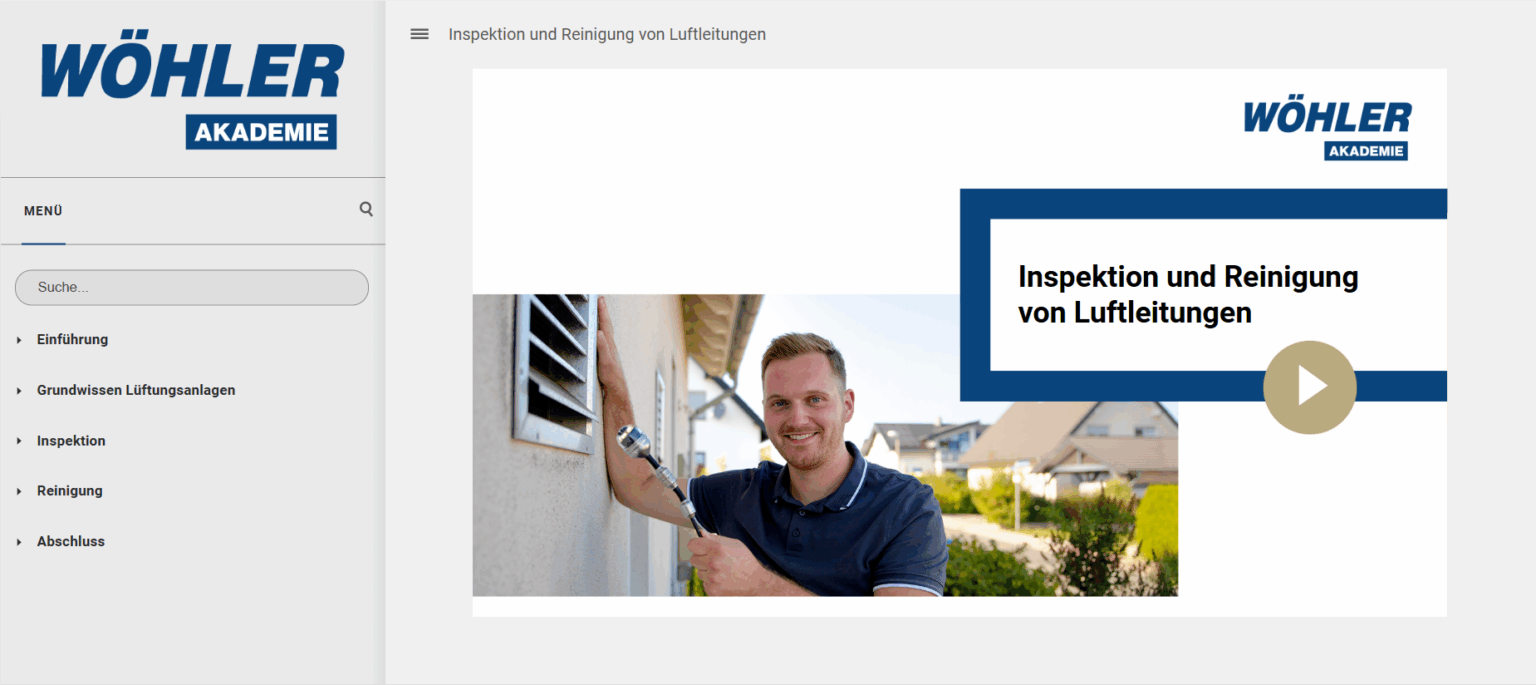
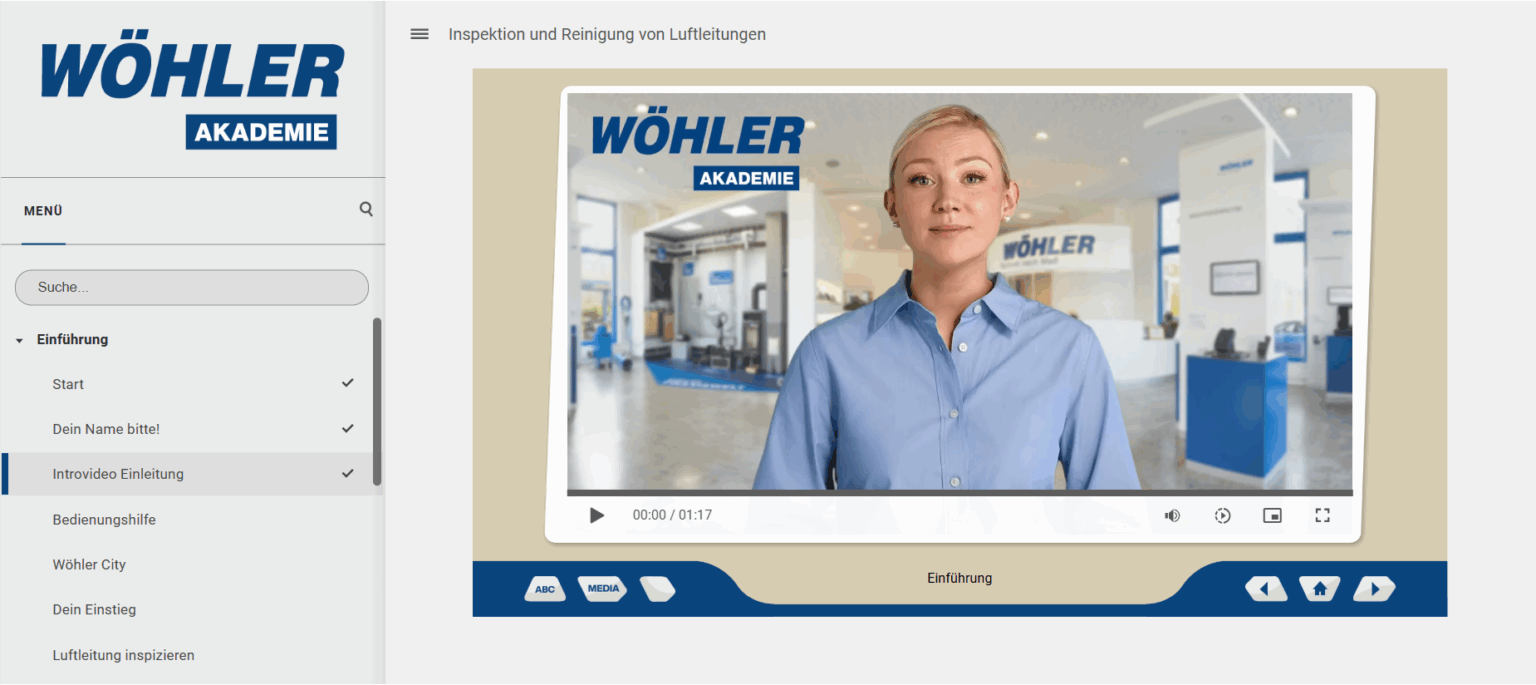
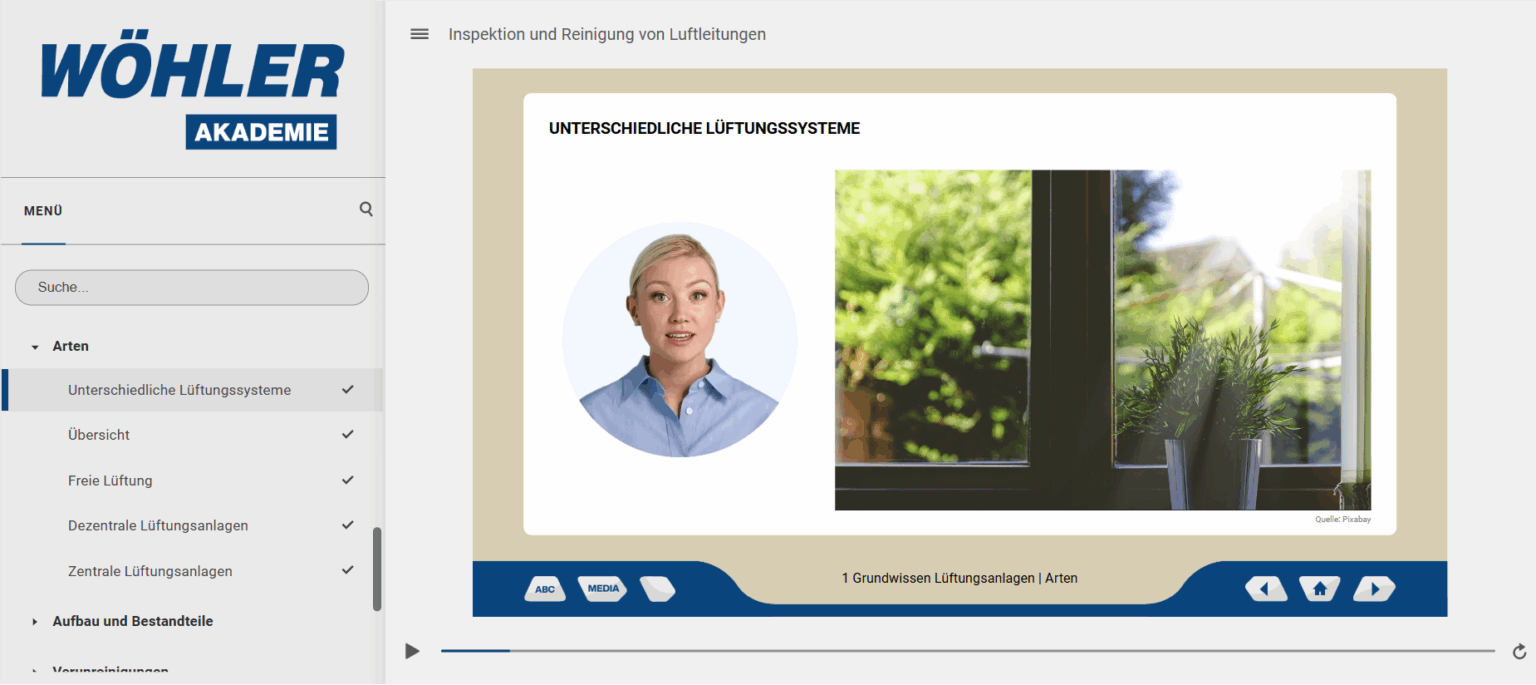
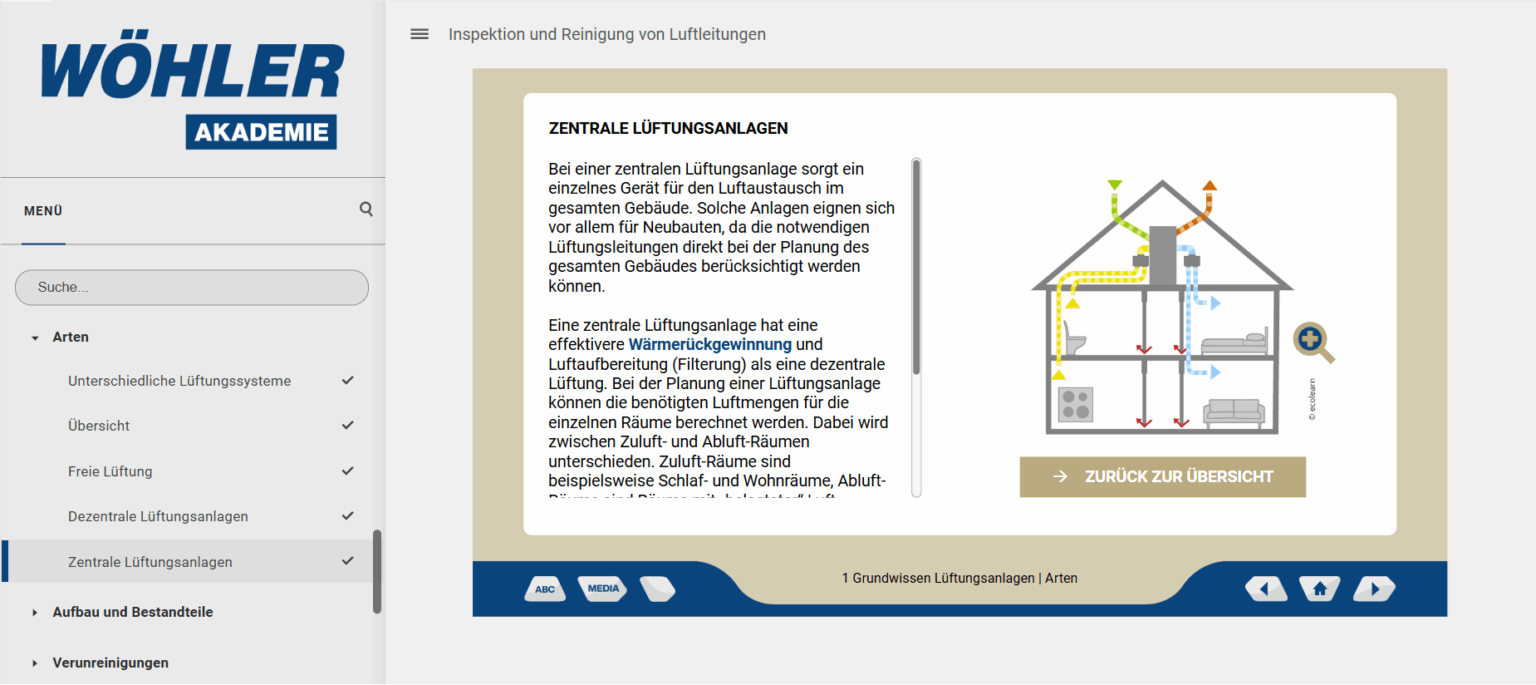
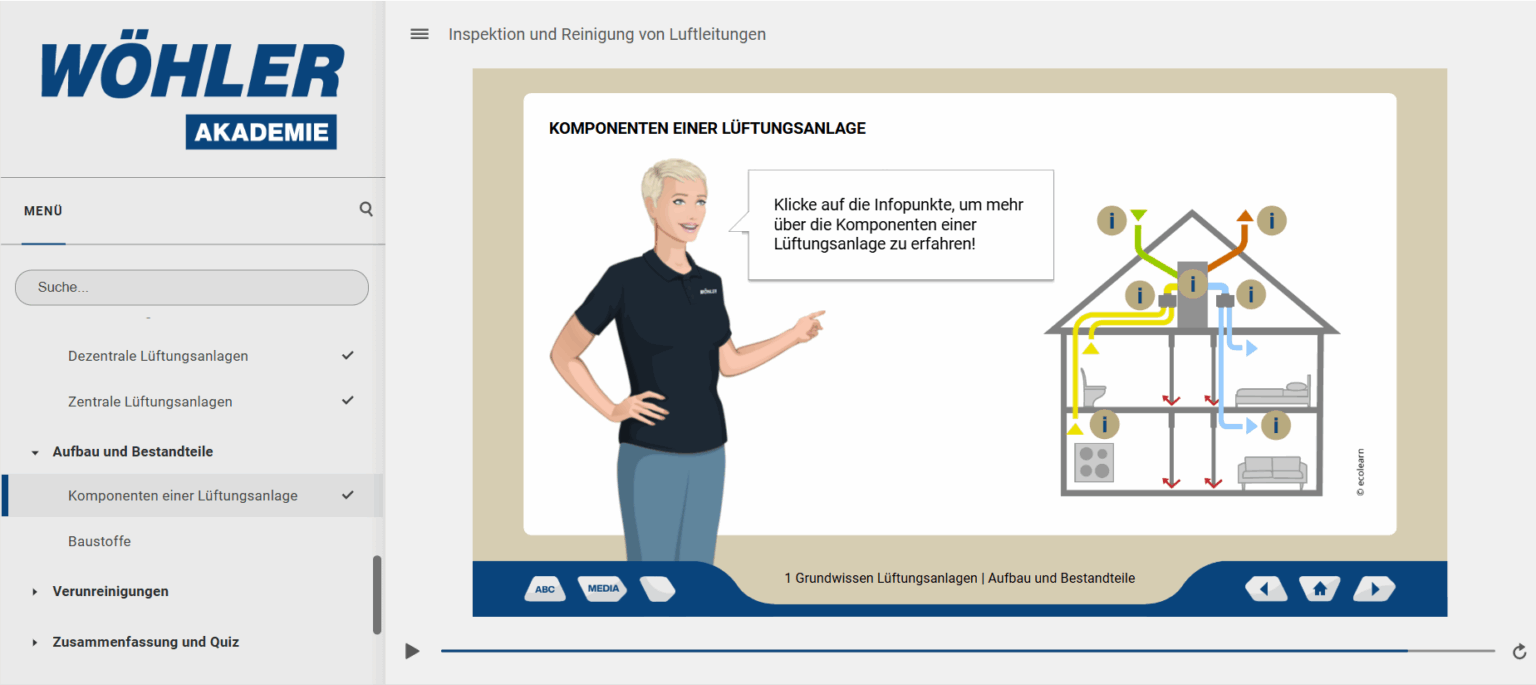
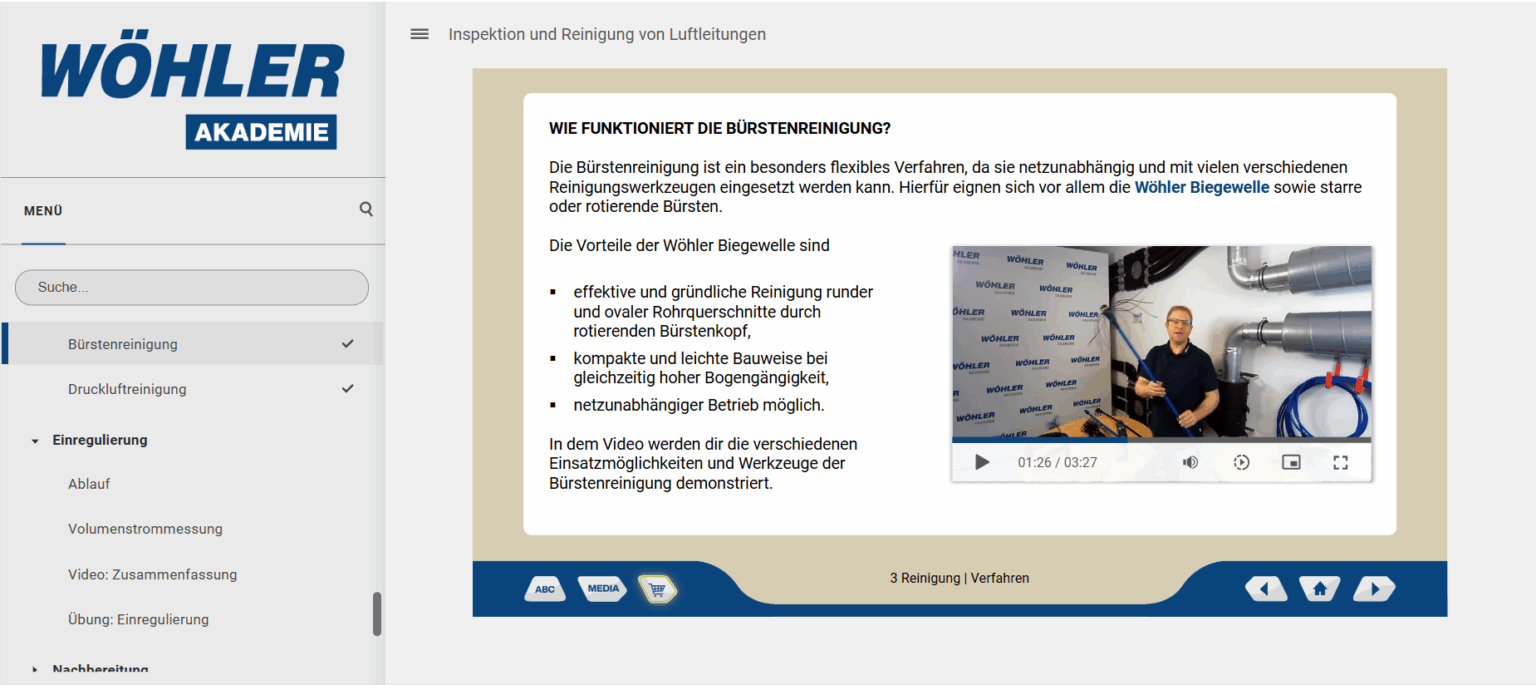
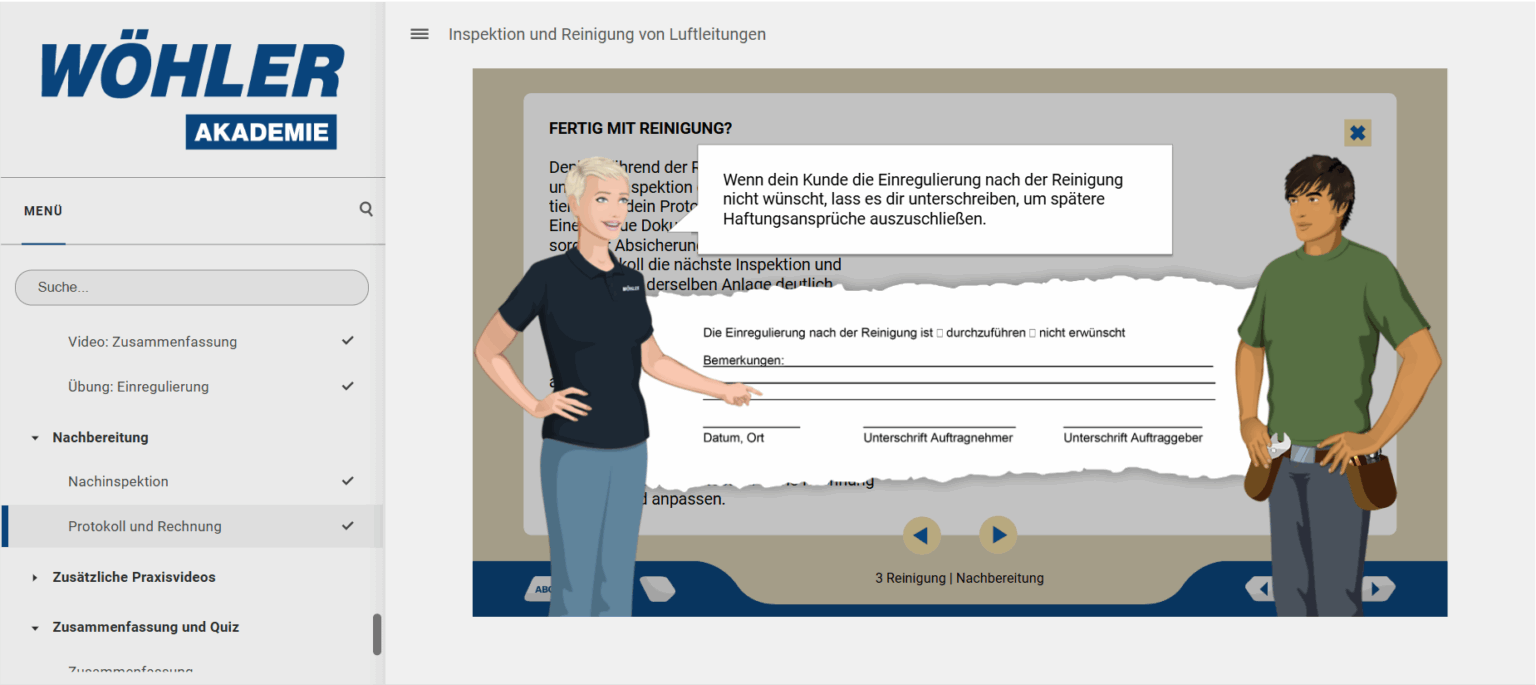
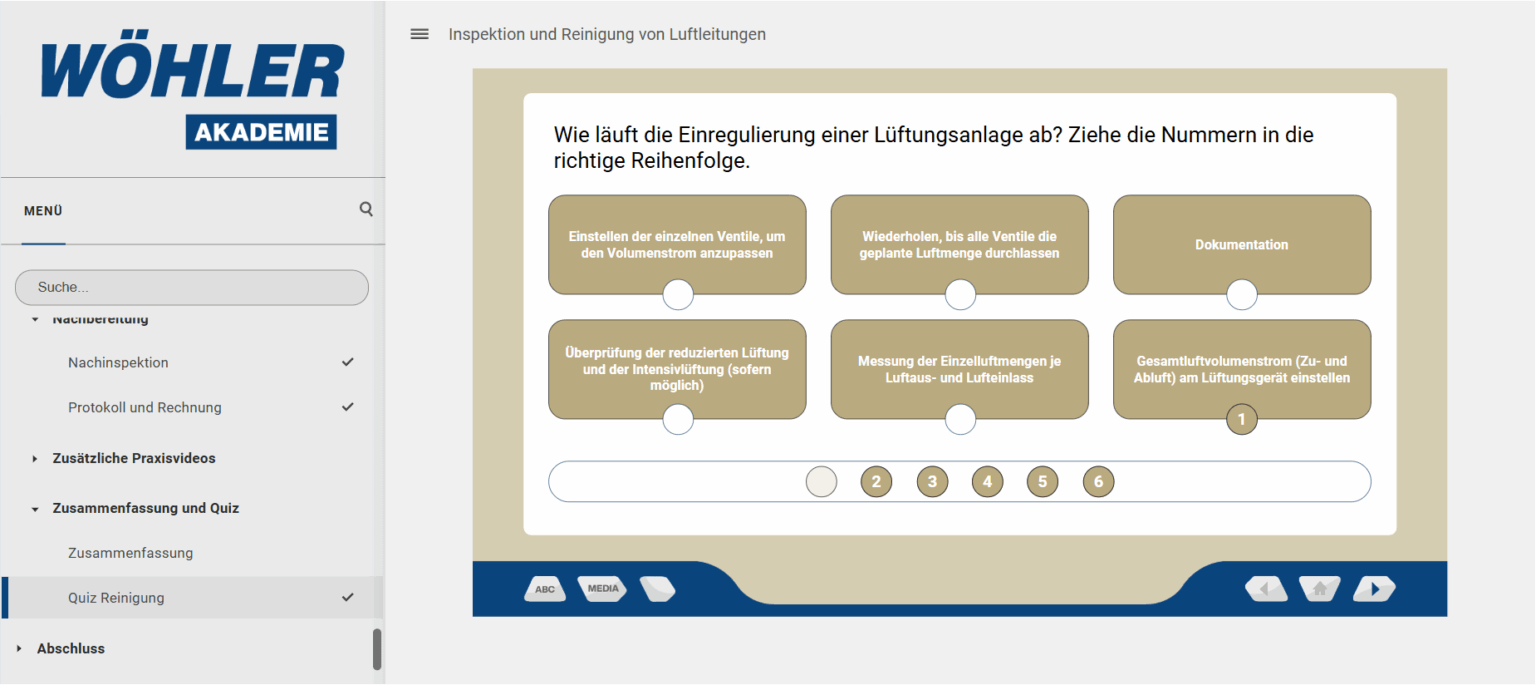
Easter egg hunt at ecolearn! 20 % on all products with an Easter egg. New every three days. Code: OSTEREI20extended until 30.04.2025. To the shop ➔
Wöhler Technik GmbH is part of the internationally orientated Wöhler Group and develops, manufactures and sells measurement technology, cleaning technology and inspection technology for heating, ventilation and building applications. The aim of our assignment was to develop an e-learning concept that would enable the academy to make new and existing content accessible beyond the German market. The primary objective here was to develop a pilot learning module that would be offered on the US market in order to show by way of example that the Wöhler range of knowledge can also be made available internationally if there is no instructor on site. Downstream, this also provides valuable empirical values on the extent to which such an offer can increase sales of inspection and cleaning equipment and ensure the quality of the applications. The use of artificial intelligence for content creation and editing as well as for simplifying production processes should be an explicit part of development.
After a detailed analysis of the boundary conditions and customer requirements, the academy's existing content was first analysed and evaluated. As part of the design concept, design variants were created that took up both the CI of the company/academy and the typical Wöhler device design and transferred them to an e-learning environment. This resulted in a customised solution with a high recognition value. A special focus of the design concept was also on the development of an artificial, AI-generated moderator that is multilingual and flexible to use. Due to various uses in both video and image form, it was therefore necessary to use different AI tools, which were harmonised by ecolearn.
Various AI tools were also tested, evaluated and applied during the creation of the e-learning pilot (learning module „Inspection and cleaning of air ducts“). Among other things, after careful consideration, selected documents from the company were made available to an LLM model to determine whether and which parts of the script could be generated using prompts and whether these could be standardised. Tools were used to generate and edit images, videos, audio files and subtitles. Tools for content adaptation, linguistic translation and text optimisation were also used for the localisation process.
The finished learning module is currently being distributed by the Wöhler Academy, both on the German and US markets.







